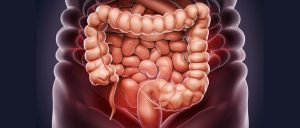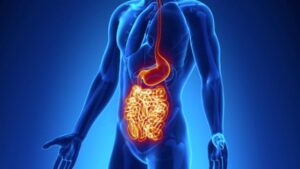
A few people that I know have asked me what I knew about acid reflux. I told them that all I knew was that the valve at the end of the esophagus does not close completely, and acid from the stomach is able to travel back up the esophagus and into the mouth. I was unsure what caused it and how to prevent or cure it. So that was the motivation for this blog.
I am sure many of you have had acid reflux at some point in your life. Maybe after eating a heavy meal or when you lie down after eating. Occasional acid reflux is completely normal in infants, children, and adults (1). It is not a problem unless you have gastro-esophageal reflux disease (GERD). People with GERD develop symptoms as a result of this disease. The main concern with GERD is developing cancer of the esophagus.
What is GERD (Gastro-Esophageal Reflux Disease)?
The esophagus is a 10-inch-long tube that runs from the mouth into the stomach. There are muscles in the esophagus that expand and contract to push food down and into the stomach. Where the esophagus meets the stomach, there is a circular muscle called the lower esophageal sphincter (LES). When food is swallowed, the LES relaxes and lets food pass into the stomach. Once the food reaches the stomach, the LES contracts to prevent food from going back up into the esophagus. Normally, the LES functions properly, and little if any food or acid goes back into the esophagus.
GERD is a disease in which the LES does not properly close. Why does the LES fail to remain closed? There are a few possible reasons. The LES may become weak over time. Having a distended (swollen) stomach is another reason for the LES to fail to close. When the LES remains slightly open, acid from the stomach and digested food can move back up. GERD can be defined as “symptoms of mucosal damage produced by the abnormal reflux of gastric contents into the esophagus” (2).
Acid is produced in the stomach.
Hydrochloric acid is produced in the stomach to help digest food. Hydrochloric acid is the main acid responsible for damage to the esophagus. The reason this acid does not damage the stomach is because we have a mucosal lining in our stomach that prevents the acid from reaching the stomach wall. When we develop a breach in the mucosal lining of the stomach, called a peptic ulcer, acid is able to reach and damage the lining of the stomach.
Symptoms of GERD
Common symptoms of GERD include heartburn, vomiting, and pain with swallowing. People who experience heartburn at least two to three times per week may have GERD (1). Symptoms of heartburn include a burning sensation in the center of the chest and/or throat and an acid taste in the throat (how someone would know what acid tastes like I do not know). Other less common symptoms include: persistent sore throat, chronic cough, difficulty or painful swallowing, regurgitation of food, a sense of a lump in the throat, or upper abdominal pain.
When does acid reflux occur?
Heartburn and food regurgitation will often occur after a large meal or a meal containing a lot of dietary fat (2). These symptoms may be worse when bending over, and they are usually relieved with antacids. Episodes of gastric reflux typically only last 3-5 minutes, but at the end of the day, this translates to the mucosa in the esophagus spending one to two hours in contact with the acid reflux (3).
How GERD is diagnosed
If someone has symptoms of GERD but no complications, the doctor will likely prescribe medication and advise lifestyle changes. In some cases, an endoscopy will be performed, where a doctor uses a tube to examine the esophagus and takes a sample of tissue to assess for damage. Another method is having a person swallow a tube and measuring the muscle contractions of the esophagus to see if it is functioning properly.
If an endoscopy finds Barrett’s esophagus (definition is below) or esophagitis (inflammation of the esophagus), the person most certainly has GERD (3). But even if an endoscopy comes back normal, this does not rule out the possibility of having GERD. To complicate matters further, the majority of symptomatic patients will have a normal endoscopy (3). Just because someone has esophagitis does not always mean that the person has more severe GERD than someone who has a normal endoscopy, which can make treating GERD complicated (3).
Because many people with GERD do not have esophigitis and a normal endoscopy does not mean for certain that someone does not have GERD, doctors may prescribe ambulatory monitoring of the esophagus (3). Patients with less extreme acid reflux develop the same symptoms as patients with severe acid reflux and thus require the same treatments. While ambulatory pH testing is not perfect, it does offer the best option to monitor the actual amount of reflux in a given patient. Two newer and less invasive methods for measuring reflux include a technology that allows monitoring of both acid and volume (nonacid) reflux, while the other is a tubeless method of acid monitoring (3).
GERD complications
Most people with GERD will never experience major complications. However, a lifetime of having acid go back up the esophagus can cause major problems.
Ulcers (holes in the mucosal lining) can develop in the esophagus from the continuous presence of stomach acid, which burns holes in the esophagus. Although not visible to us, bleeding can result from these ulcers. Doctors can detect this blood in stool samples.
Stricture is when the acid damages the esophagus, causing it to scar and narrow. I don’t think I need to tell you what problems a narrowed esophagus can cause (choking!). Scarring results from the constant burning and healing of the esophagus tissue. Scarring causes thickening of tissue and narrowing of the esophagus.
Barrett’s Esophagus results when constantly damaged tissue in the esophagus transforms from squamous cells into intestinal cells. These intestinal cells have a higher chance of developing into cancer cells, and frequent endoscopies are necessary to check for cancer cells. Developing Barrett’s Esophagus is the most significant concern for those with GERD.
Espohagitis is an inflammation that may damage the lining of the esophagus. This condition can cause painful and difficult swallowing, along with chest pain. If left untreated, this can lead to strictures and difficulty swallowing. Symptoms include difficulty swallowing, food getting stuck in the esophagus, painful swallowing, chest pain behind the breastbone, and heartburn. If you have had any of these symptoms for more than a few days, see your doctor.
GERD general treatments
There are a few options for treatment, ranging from simple lifestyle modifications to surgery. If there is no damage to your esophagus, the doctor will likely start with diet or lifestyle changes. If there is significant damage to your esophagus, more serious treatment will be needed. If patients thought to have GERD respond well to therapy specific to GERD, it can be assumed that the patients indeed have GERD. When GERD is not relieved when making appropriate changes, there is a chance the person does not have GERD, but even still, this does not completely rule out the possibility (3).
Unfortunately, one of the easier methods of treatment, lifestyle modification, does not offer acid reflux relief for the majority of patients (3). Some lifestyle treatments that have been shown to offer some relief, although not rigorously studied, include elevating the head of the bed (this does not mean using many pillows; this may actually worsen acid reflux), decreasing dietary fat intake, stopping smoking, and avoiding lying down within three hours after consuming a meal.
GERD-specific treatments
Antacids and antirefluxants: Both antacids and antirefluxants can be bought over the counter. I am sure most of you know common antacids like alka seltzer, mylanta, tums, and maalox. A common antirefluxant is alginic acid. Antacids contain base minerals like magnesium, which counterbalance the acid in your stomach (bases neutralize acids; if you remember anything from high school chemistry, it is likely this). Alginic acid is often used with antacids.
Alginic acid forms a layer on top (they soak up water and form a gel) of the stomach, which prevents acid from leaving the stomach and entering the esophagus. It acts like a protective coating for the stomach. From what I can tell, alginic acid can be ordered in supplement form from drug websites or a site like Amazon. I do not want to be viewed as promoting one website or brand over another, so I will leave it up to you, but if you have any questions, you can email me the product name, and I will let you know what I think. I am fairly certain you can get prescriptions as well.
Both of these treatments are effective at treating milder cases of GERD. In a study, they were shown to be more effective than a placebo in relieving heartburn (3). An antacid/alginic acid combination is more effective than taking only an antacid. There are two long-term trials that have shown relief in 20% of patients taking over-the-counter drugs (3).
H2RA is also known as an H2 receptor antagonist. These drugs work by blocking the action of acid-producing cells in the stomach, thereby reducing total acid production in the stomach. These drugs have longer durations than antacids (6–10 hours versus 1-2 hours for antacids) and can be used before meals to reduce the chance of getting heartburn. Some examples are Pepcid, Zantac, and Tagamet. All of these drugs are available over the counter (no prescription is required). These medications are supposed to be used for only 14 days straight, and any use beyond this time requires a doctor’s visit, as some of these patients may be at risk for Barrett’s esophagus or other upper gastrointestinal problems (3). Higher doses may be more effective.
Protein pump inhibitors (PPI’s)—this is the only acid-suppressing option that not only helps the symptoms of GERD but actually promotes healing of the esophagus! The results of 33 randomized trials involving GERD found symptom relief in 60% of patients taking H2RA’s and 78% of patients taking PPI’s (3). Esophagitis was healed in 50% of patients taking H2RA’s and in 78% of patients taking PPI’s (3). In addition to healing espohagitis better than H2RA’s, PPI’s also heal it quicker.
PPIs are safe and have been used for more than a decade in the United States. Any harm from long-term use of PPI’s is outweighed by the significant benefits it produces for those with GERD. A few patients have suffered from vitamin B12 deficiency, so if you plan on taking PPI’s long-term, make sure to get your vitamin B12 levels checked in blood work. The five available PPIs are: omeprazole, lansoprazole, rabeprazole, pantoprazole, and esomeprazole. I’m pretty sure these are all prescription drugs.
Surgery: surgery is an option for those with severe GERD. Surgery carries many inherent risks and is advised for younger patients with GERD. Its long-term effectiveness is controversial as well. Surgery is best discussed with your doctor. One study found that even after surgery, 62% of patients continued taking antireflux medications (5).
Endoscopic Therapy: Endoscopic therapy is a new treatment that controls GERD endoscopically (3). There are three different treatments, which are all rather technical, but they are an alternative treatment to both medication and therapy. Short-term studies have proven the effectiveness of endoscopic therapy in reducing symptoms of GERD, but long-term results are not as well studied. Besides the issue of only having a few studies on this topic, most of the studies had few participants. Before this can be considered an effective long-term therapy, more studies need to be undertaken, but preliminary studies look promising.
GERD is a lifelong disease.
Unfortunately, GERD is a chronic condition, and when patients stopped taking PPI’s, their acid reflux came back. Most patients require lifelong therapy. Because of this, it is best to find out the least amount of medicine you need to take to control your GERD and reduce the side effects of the medications. H2RA’s do not suppress GERD long-term, nor do low doses of PPI’s. Because of this, increased doses of PPIs may be required for long-term suppression of the disease. Even with control of GERD, patients will experience relapses of acid reflux throughout their lives. Rather, a depressing diagnosis.
Most acid reflux events are not perceived by patients.
Complicating things further, most episodes of acid reflux are not even perceived by the patient. One study found that less than 5% of the acid reflux events were perceived by the patient (4).
Progression of the disease
There is still much confusion about the natural progression of this disease. Oddly enough, the few long-term studies out there show that patients without mucosal damage to the esophagus do not usually develop damage the longer they have GERD. This goes against common sense, and there must be more long-term studies to clarify this issue. It seems that it is only possible to develop esophageal cancer if one has Barrett’s esophagus first, so even with GERD, without Barrett’s esophagus, the chance of developing cancer is very low. Studies have shown that those with erosive esophagitis, no matter how severe, rarely progress to Barrett’s esophagus if they lack Barrett’s epithelium underneath the inflammation (4).
Can we assume that those with normal mucosa of the esophagus have less severe GERD than those with esophageal damage? Surprisingly, the answer is likely no. Many patients without mucosal damage have chronic cough, asthma, hoarseness, and other laryngeal symptoms that may reflect the complications of their underlying disease (4). Because of this, those with normal mucosa of the esophagus should be treated similarly to those with mucosal damage to their esophagus.
Discussion
While the blog has been very interesting to write, I am left confused about the subject. It appears that there is a lot of uncertainty about treatment effectiveness, the progression of the disease, and the likelihood of getting cancer. There is uncertainty because there are so few long-term studies of people with GERD. I was surprised that GERD is so hard to control and is a lifelong disease. It seems that despite lifestyle modifications and diet adjustments, those with GERD will continue to have symptoms.
I did not go over problem foods since very few people can relieve acid reflux by cutting out certain foods. Some foods may aggravate it, but there are few studies showing which foods are the worst. If you really have GERD, cutting out certain foods will offer little to no relief.
The main danger of having GERD is developing cancer of the esophagus. If you suspect you have this disease, it is best to talk with your doctor as soon as possible and have an endoscopy performed to check for damage to the lining of the esophagus. Antacids and antirefluxants can be effective, but these options are best discussed with your doctor. In the meantime, you can eat smaller meals, not lay down after meals, and not consume too much fat at once. These may offer some relief but will not cure GERD.
This blog is not meant to scare those with GERD. Most people who have GERD will never develop Barrett’s esophagus and, thus, will never develop esophageal cancer. This blog is to inform people about the disease and ways to treat it. I hope that over time there will be a better understanding of the disease and better long-term treatment options.
.Sources
1) Kahrilas, P. J. (1996). Gastroesophageal reflux disease. Jama, 276(12), 983-988.
2) DeVault, K. R., & Castell, D. O. (2005). Updated guidelines for the diagnosis and treatment of gastroesophageal reflux disease. The American journal of gastroenterology, 100(1), 190-200.
3) Orlando, L. A., & Orlando, R. C. (2004). Pathophysiology of GERD: esophageal epithelial defense. Practical Gastroenterology, 28(7), 14-27.
4) Fass, R., & Ofman, J. J. (2002). Gastroesophageal reflux disease—should we adopt a new conceptual framework&quest. The American journal of gastroenterology, 97(8), 1901-1909.
5) Spechler, S. J., Lee, E., Ahnen, D., Goyal, R. K., Hirano, I., Ramirez, F., … & Williford, W. (2001). Long-term outcome of medical and surgical therapies for gastroesophageal reflux disease: follow-up of a randomized controlled trial.Jama, 285(18), 2331-2338.




This has been the best post of the topic I ever read. I have reflux, and it was a really helpful reading.
Again thanks for posting such interesting topics !!
Hey Bernal. Im glad you found it interesting and easy to understand! I never realized what a serious condition having acid reflux is. Have you noticed that it gets worse with certain foods? As I mentioned in the blog avoiding foods may help but not cure it. Also, make sure not to eat too close to bedtime. I recently started feeling acid reflux but it is only when I eat before I go to bed. Laying down makes your digestive system work against gravity so there is more of a chance of food going back up the esophagus. But if you have had GERD for a while you should probably get your espohagus checked out by a doctor to see if there is any damage
gracias por esta información del reflujo muy interesante para mi a parte de todos los temas que has escrito este me intereso muchísimo ya que tengo reflujo y me ha ayudado mucho a leerlo y tus consejos
nuevamente gracias por este tema
gracias. mucho personas tienen reflujo acido y es la tema muy interesante para mi. si tu tiene otras temas en tu miente que me quieres a escribir por favor diga me!
UNA PREGNTA
LOS ANTIBIOTICOS DAÑAN LA FLORA INTESTINAL
ESTA SE RECUPERARA.
O SE DAÑA SI SE TOMA MUCHOS ANTIBIOTICO
Pienso que los antibioticos muerte casi todo los bacterias beneficioso en tu intestine!
You mentioned you don’t know exactly how acid taste like… I guess when you are sick and you vomit everything that is in your stomach and you keep vomiting without having anything left to throw out; you feel like you esophagus and throat is burning… In my opinion, that aftertaste in your mouth is what I feel is close to the taste of acid. Very interesting blog.
Hey Rob, it’s me teri , from Community Hope. I miss you. Thank you for Hummus that you left for me. Are you still with WIC? I had misplaced your www. address. I found it and that’s why I was able to read and love your blogs. Hope all is well with you n your wife . Wow, you are some great writer. Information is great. Also, you are a good teacher. I will get my G-mail hooked up but if you can, just call or text me on 973-756-7230. Bless You n your family. Hope your mom is listening to her son’s advice. Happy Easter and Passover and all Holidays that are celebrated in the name of peace and joy.
Oh Wow, very interesting & so true. Only last week my husband was in the hospital & was diagnosed with GERD. His food was not digesting thus forcing it back up the esophagus giving him very bad acidity & the walls of stomach were inflamed. His symptoms were those similar of a cardiac arrest. His heart rate was dropping tremendously with the contracting pain & was feeling nauseous.
I never heard of GERD before & surprisingly it was the first Blog I read.
Excellent Info. thanks for sharing….. Great work!!
Hi Savita. Thank you for taking the time to read the article and comment. I am sorry that your husband went through that, it must have been scary. Have you noticed any foods that make his GERD worse? Was he just diagnosed with this?
I do not really have any reflux except for sometimes if I eat something acidic like tomato sauce before I go to bed. You should never eat too close to bedtime because when you lay down food has an easier time going back up your throat. I have woken up in the middle of the night with a terrible feeling in my chest but I take Tums and within 20 minutes the reflux is gone.
Did the Dr. prescribe him any medication? Feel free to leave a reply here or if you prefer you can email me at RobertjMelick@gmail.com. If you have any other health or nutrition questions I would be glad to help you out as best as I could. Thanks again for checking out my website!
Rob
Oh yes, he had a strong cup of coffee prior to admission, also the night before he had some spicy food. So now he has to stay away from those types of food.
Doctor prescribed Pantoprazole, so he is taking that for now & doing much better. No more pain or heartburn since. Thank god.
That is so true, never to eat close to bed time, its very uncomfortable & TUMS really helps.
Thanks for all your great advices. I am really enjoying reading all your articles.
I am glad to hear your husband is getting better and that it definitely turned out to be acid reflux. I appreciate you reading my articles and I am glad that you enjoy them. As always, feel free to comment or email me if you have any questions!!